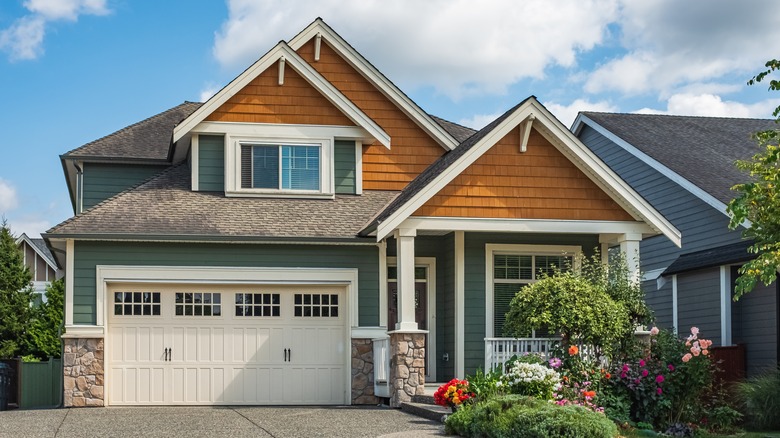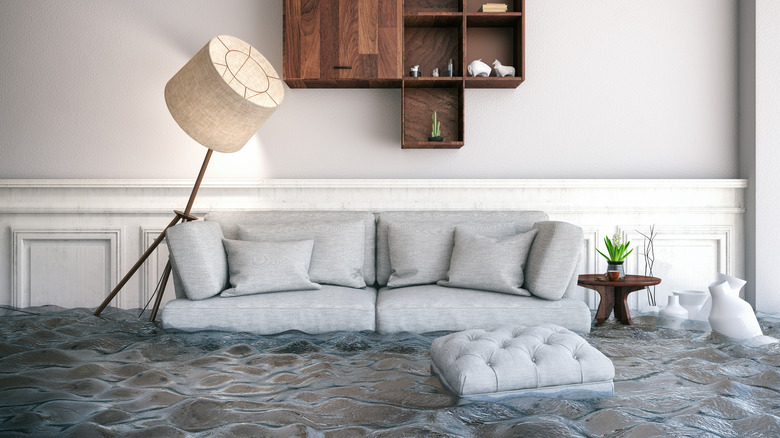It's Time To Stop Relying On This Common Assumption About Home Insurance
If you're a homeowner, protecting your investment is well worth the extra cost of insurance each month. Mortgage lenders think so too, as they require that borrowers have a policy until it's fully paid off. But even though nearly all homeowners have insurance, there are many misconceptions about the arrangement. If you're making assumptions about your coverage, it's a recipe for problems that could lead to some costly headaches later on.
Generally speaking, homeowners insurance covers damage to your home, property, and personal belongings. It also provides liability coverage in case other people are injured on your land. However, a common assumption is that these policies protect everything within these categories. Unfortunately, this isn't the case.
There's a long list of things that homeowners insurance typically doesn't cover, such as damage resulting from certain natural disasters. If you want to take care of your property and avoid major repairs on your own dime, you need to dig deeper into your policy and understand exactly what it does and doesn't cover. Avoiding common mistakes when buying home insurance will ensure your abode and belongings have the protection you need.
Two major exclusions from most home insurance policies
While home insurance offers quite a bit of security, most policies don't automatically include protection from natural disasters. In the case of an earthquake, flood, or a landslide, you're unlikely to have coverage. On the other hand, damage that results from heavy winds and tornadoes may be protected, but you'll need to check your policy to make sure. Sometimes damage is excluded from the contract if you live in a high-risk area.
If you want to have the most protection possible, you should consider getting an additional policy that goes beyond what your homeowners insurance provides. You can secure flood or earthquake coverage either as a separate plan or through an endorsement on your current contract. To determine if you need flood or earthquake protection, consider whether you're in a high-risk area and think carefully about whether you'll be able to budget for it.
Another thing that typically isn't covered by homeowners insurance is pest control. If your property experiences damage due to termites, rodents, or another type of pest, your policy likely won't offer any reimbursement. Pest damage is typically viewed as the result of not maintaining your home as well as you should have. It's considered controllable. But sudden damage to your property by a pest or wild animal is another story — it might be covered if it isn't deemed preventable.
Other things to understand about your policy
There are a few more things to keep in mind when it comes to home insurance policies. It's important to note that in general — not just in the case of pests — damage that's the result of maintenance problems won't be covered. This is why contracts may also exclude problems such as roof leaks if they seem to be the result of general wear and tear.
Home insurance also doesn't cover all belongings, and it won't fully cover expensive items such as jewelry. Pay attention to the actual cash value (ACV) or replacement cost value (RCV) limits on your policy. ACV considers depreciation and wear and tear, while RCV is based on the cost to replace your items. Both will have deductibles and coverage limits — and on many policies, you'll be covered for an amount that's well below the actual value of your items.
Finally, remember that coverage may be different if you run a business from home. You might need to get an additional policy to include protection for equipment and supplies. Speak with your insurance provider to ensure you're aware of what is and isn't covered on your policy and to get any supplemental coverage you need.


